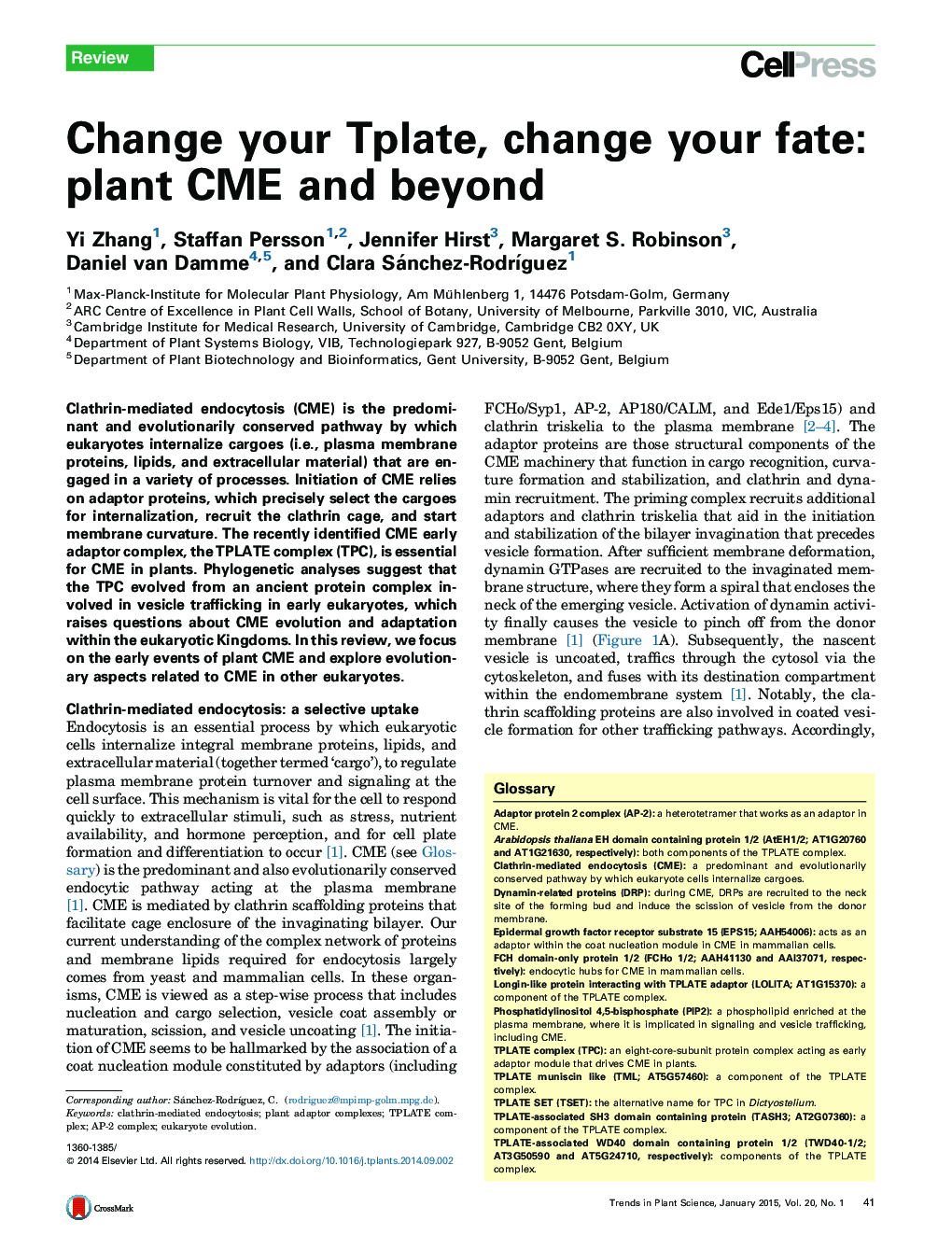| Article ID | Journal | Published Year | Pages | File Type |
|---|---|---|---|---|
| 2825903 | Trends in Plant Science | 2015 | 8 Pages |
•The octameric TPLATE complex (TPC) is essential for initiation of CME in plants.•The TPC works in concert with the AP-2 complex.•The TPC most likely evolved as an ancient eukaryotic mechanism modulating endocytosis.•The TPC has been functionally retained in plants but not in animals or fungi.
Clathrin-mediated endocytosis (CME) is the predominant and evolutionarily conserved pathway by which eukaryotes internalize cargoes (i.e., plasma membrane proteins, lipids, and extracellular material) that are engaged in a variety of processes. Initiation of CME relies on adaptor proteins, which precisely select the cargoes for internalization, recruit the clathrin cage, and start membrane curvature. The recently identified CME early adaptor complex, the TPLATE complex (TPC), is essential for CME in plants. Phylogenetic analyses suggest that the TPC evolved from an ancient protein complex involved in vesicle trafficking in early eukaryotes, which raises questions about CME evolution and adaptation within the eukaryotic Kingdoms. In this review, we focus on the early events of plant CME and explore evolutionary aspects related to CME in other eukaryotes.
